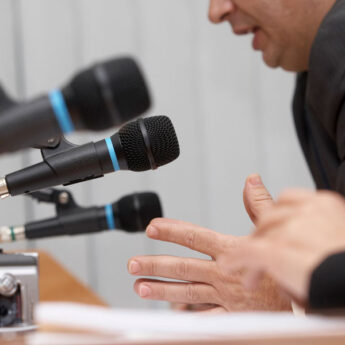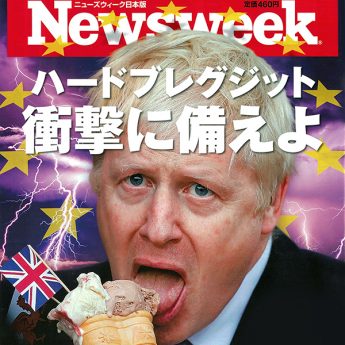Keidanren Meets Cameron over Free Trade Agreement
Prime Minister David Cameron told the visiting Keidanren Chairman Hiromasa Yonekura that Britain will assume leadership in promoting the conclusion of an economic partnership agreement between the EU and Japan, reported the Mainichi Shimbun on 8 July.
Cameron told the business lobby chief that the EU wants Tokyo to drop nontariff barriers as a precondition for concluding the agreement, and he asked Japan to move forward on this to help Britain convince other EU states, according to officials.
Cameron praised the 1,300 Japanese firms in Britain that employ 120,000 staff and for maintaining these jobs despite the global financial crisis and the 11 March earthquake and tsunami.
New Material Shrinks—Rather Than Expands—When Warm
Collaboration between Japanese institutions and Edinburgh University has created a material that contracts with heat, unlike normal materials that expand, reported the Nikkei Sangyo Shimbun on 16 June.
The team—including the Tokyo Institute of Technology, Kyoto University and the Japan Synchrotron Radiation Research Institute—discovered that bismuth-nickel oxide shrinks most when warm, at between room temperature and 120C. Potential uses include preventing machine components from expanding and avoiding an automatic switch-off when applying heat to an electric circuit.
Media Lauds Fastest Supercomputer
The past month has seen high profile developments in several areas of science and technology in Japan, according to an editorial by Ed Thomson, Science & Innovation Consul at the British Consulate- General, osaka. The information appeared in the July issue of the newsletter put out by the Science & Innovation Section at the British Embassy Tokyo.
Covered by the article is a June announcement by Riken, the public research agency, and Fujitsu that the K System supercomputer they are jointly developing in Kobe officially had become the world’s fastest. The supercomputer narrowly survived last year’s round of cuts made to large-scale science and technology projects. The press have been overwhelmingly positive about the computer-related achievement, which has been taken as a sign of Japan’s continuing strength in science and technology (and, not to be overlooked, its ability to stay ahead of China).
Bid to Improve Whaling Body
Following allegations in 2010 that, in a bid to buy votes at the International Whaling Commission (IWC), Japan had dispensed aid money and favours—assertions that Tokyo has denied—Britain has proposed reforms to make the intergovernmental body more transparent and effective, reported The Guardian on 14 July. The suggestions include forcing governments to pay membership subscriptions by bank transfers instead of cash; making it mandatory to publish IWC minutes and decisions within weeks not years; and requiring that all scientific evidence be peer-reviewed.
£30m to Build Asia Academy
Tesco has invested more than £30m in a new Asian training academy that will support its Japan operations, reported online Talking Retail on 11 July. The South Korean academy will train about 24,000 staff each year across the region and is a first for the country, Tesco and a global FTSE100 firm.
Chief executive Philip Clarke said: “This is a 21st century training centre which will become our hub of learning and expertise for the region. It will help us to build on the already strong team we have here and combine deep local knowledge with global experience to develop tomorrow’s leaders”.
Duke of York to Quit as UKTI Envoy
Prince Andrew will give up his title as Britain’s special representative for trade and investment, British newspapers reported on 21 July. The prince, who has held the role since 2001, had been criticised over a report that appeared on Wikileaks and for his friendship with controversial figures. There also have been complaints about the perceived lavish nature of his official foreign trips.
However, supporters believe the prince, who receives no salary but is refunded expenses and travel costs, had opened many doors for UK business. Prime Minister David Cameron thanked him for the “major contribution he has made over the last decade to UK trade overseas”.
Buckingham Palace said the prince would “continue to support business in the UK”, adding that he “will not have a specialist role as defined by government, but will undertake trade engagements if requested”.
His future duties will include:
• Encouraging and inspiring young people to develop skills to play a role in enabling businesses to thrive.
• Recognising and supporting the many apprentice schemes developing as a part of the Skills and Innovation agenda.
• Ensuring firms can make the most from the London
2012 olympic Games and Paralympic Games business legacy opportunities.





